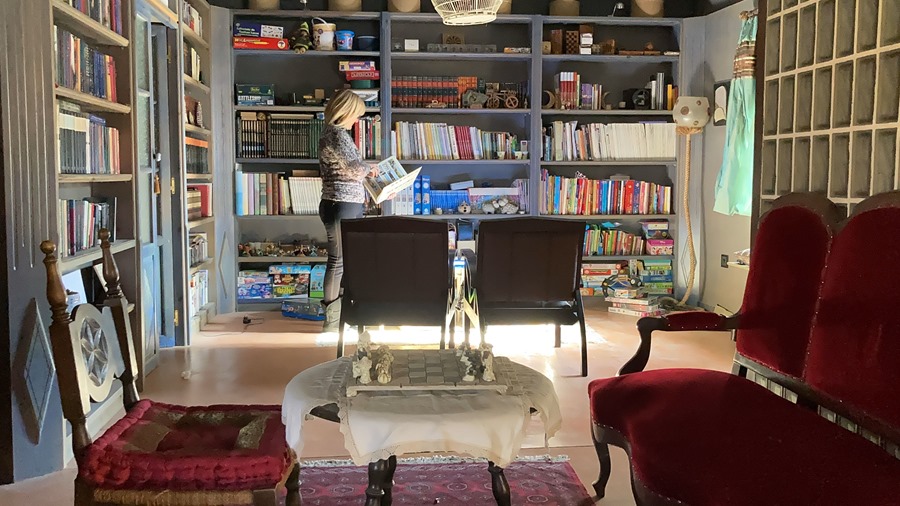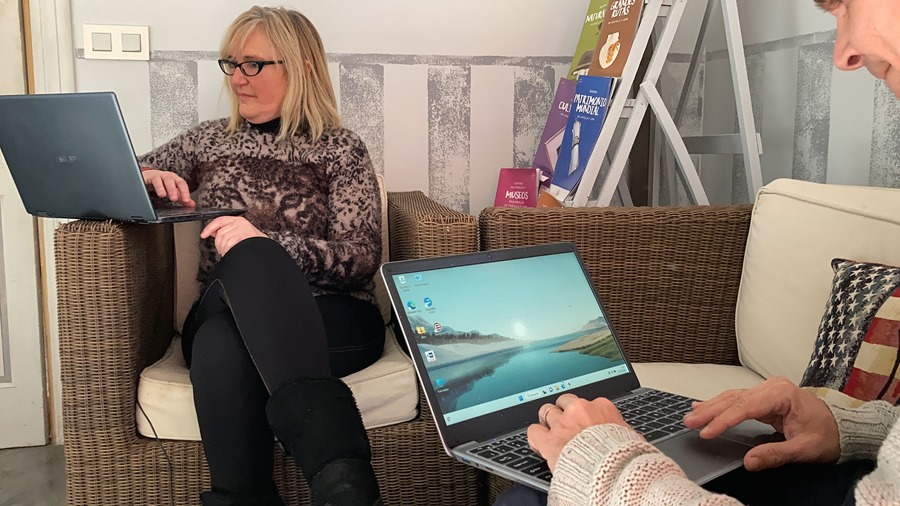Alberto Ferreras |
Villarrín de Campos (Zamora) (EFE).- When the germ of what is now the National Association of Coliving and Coworking (Ancyco) was gestated four years ago, its members had to look at Serbia because in Spain there were hardly any references on what it was cohabitation and coworking.
At that time, teleworking was only within the reach of a privileged few, but currently doing your workday from a rural hotel is a life option that also gives wings to towns and helps them face the demographic challenge, as the president has explained to EFE from Ancyco, Patricia Garcia.
The pandemic has multiplied the market niche in which rural tourism accommodation offers the necessary conditions to combine leisure and business from the rural environment, a proposal that strengthens this association and that represents a way of giving life, beyond the weekend , to population centers in emptied Spain that have an adequate telecommunications infrastructure.

This rules out populations that lack good mobile phone coverage or that do not have fiber optics, but with the spread of broadband, more and more people can jump on the tourism bandwagon during working hours.
One of the pioneers in this field has been the rural tourism businesswoman from Villarrín de Campos (Zamora) and president of Ancyco, who has defended this activity as a first step so that those who live this experience can later establish themselves and reside permanently in the town they discover through a rural accommodation conditioned for co-working.
A “soft jump” from the city to the countryside
“What we really do is a smooth jump from the city to the countryside,” explained Patricia García, who has missed a greater offer of rental housing so that these people can later settle in the municipality from which they have previously lived. an experience of extended stay of rural tourism made compatible with remote work.
Of course, not all establishments serve and that is why the association, with a presence in 17 Spanish provinces, develops a certification that guarantees that it meets the appropriate conditions, such as having a specific space for its clients to telework and “decent Wi-Fi”. or that the businessman commits to teach the nature, heritage and gastronomy of the area.
“We call them living accommodation because things happen, here whoever enters you know that they want to collaborate, that they want to know, that they want to investigate the territory”, he declared, to go on to mention the cornerstone of the project: the contribution to the fight against depopulation because this type of tourist “stays longer, consumes at the bar, at the pharmacy, at the supermarket”.

One of the practitioners of cohabitation and coworking is the Valencian Chimo Nieto, who has clarified to EFE that, in general, digital nomads do not have a family, so they do not contribute to the rural environment in terms of students for school but In exchange, their upper-middle income translates into consumption in gastronomic or recreational activities and this has “a direct effect on the economy of the area.”
An agronomist who works for a multinational in the treatment of pests and weeds in crops, Nieto has a permanent stay in Valencia and makes trips to other places where he spends an average of a week and, if he likes them, he repeats in more of an occasion.
“I like empty Spain because it is empty, I move there fleeing from the crowds to be able to go out into the countryside quietly with my binoculars”, this digital nomad has confessed, who in the last two years has traveled five times to Villarrín de Campos and He intends to rent a house for a few months in Villardeciervos, another rural municipality in Zamora that is attractive for nature tourism.






